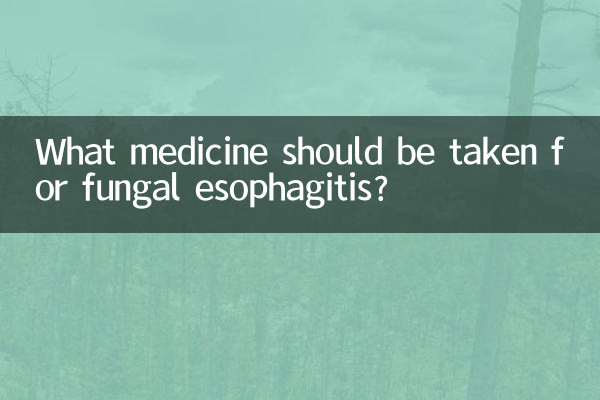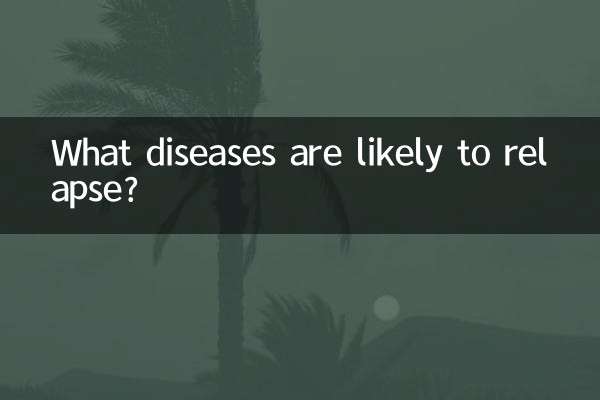What medicine should be taken for fungal esophagitis?
Fungal esophagitis is an inflammation of the esophagus caused by fungal (mainly Candida albicans) infection and is common in people with low immunity. Recently, the treatment of fungal esophagitis has become a hot topic, and many patients and their families are very concerned about it. This article will introduce in detail the commonly used drugs for fungal esophagitis and provide structured data for reference.
1. Common symptoms of fungal esophagitis

The main symptoms of fungal esophagitis include pain on swallowing, retrosternal pain, dysphagia, etc. Some people may have white patches in the mouth (thrush). If the above symptoms occur, you should seek medical treatment promptly for diagnosis.
2. Commonly used drugs for fungal esophagitis
Drugs for the treatment of fungal esophagitis mainly include antifungal drugs and adjuvant drugs. The following are the classification and usage of common drugs:
| drug type | Drug name | Usage and dosage | Things to note |
|---|---|---|---|
| antifungal drugs | fluconazole | Oral, 200-400mg daily, treatment course 2-3 weeks | Use with caution in patients with abnormal liver function |
| antifungal drugs | itraconazole | Oral, 200mg daily, treatment course 2-4 weeks | Need to be taken with food to enhance absorption |
| antifungal drugs | voriconazole | Oral or intravenous injection, 200mg daily, treatment course 2-4 weeks | Suitable for drug-resistant cases |
| Adjuvant therapy drugs | Omeprazole | Oral, 20-40mg daily | Used to reduce gastric acid irritation |
| Adjuvant therapy drugs | sucralfate | Orally, 4 times a day, 1g each time | Protect esophageal mucosa |
3. Precautions for drug treatment
1.Take medication as directed by your doctor: The medical treatment of fungal esophagitis must strictly follow the doctor's instructions, and you are not allowed to adjust the dosage or stop the medication on your own.
2.Monitor liver function: Some antifungal drugs may affect liver function, and liver function needs to be checked regularly during medication.
3.Be aware of drug interactions: Antifungal drugs may interact with certain drugs (such as warfarin, digoxin, etc.). You need to inform your doctor about other drugs you are taking.
4. Preventive measures for fungal esophagitis
1.Enhance immunity: Maintain good living habits, eat a balanced diet, exercise appropriately, and enhance immunity.
2.Avoid overuse of antibiotics: Long-term or misuse of antibiotics may lead to dysbiosis and increase the risk of fungal infection.
3.Pay attention to oral hygiene: Clean your mouth regularly to reduce fungal growth.
5. Answers to recent hot questions
Recently, the following issues regarding fungal esophagitis have become hot topics:
1.Is fungal esophagitis contagious?Fungal esophagitis is usually not directly contagious, but people with low immunity need to be careful to avoid contact with sources of infection.
2.Can fungal esophagitis heal on its own?Fungal esophagitis usually requires medication, and people with extremely low immunity may not be able to heal on their own.
3.Will fungal esophagitis recur?If immunity is not improved or treatment is not thorough, relapse may occur.
Summary
The treatment of fungal esophagitis is mainly antifungal drugs, supplemented by mucosal protectants and acid-suppressing drugs. Patients need to strictly follow the doctor's instructions when taking medication and pay attention to strengthening their immunity. If symptoms persist or worsen, follow-up visits should be made in time.

check the details

check the details